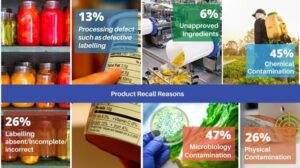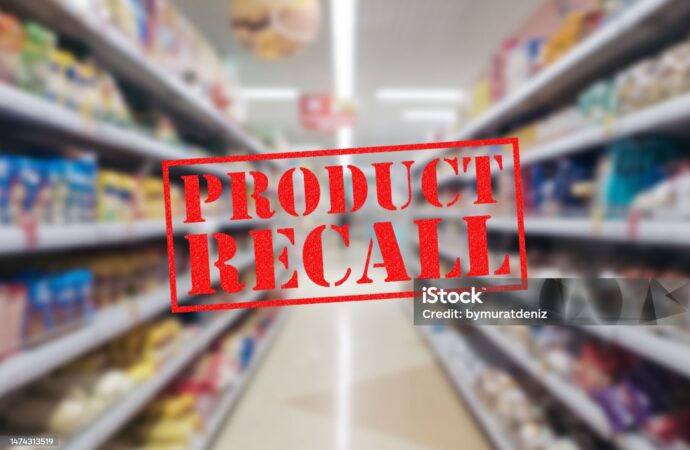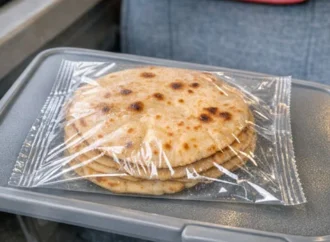As a consumer, food recall can be alarming. If you possess a recalled product, it’s important to discard it immediately. For manufacturers, recalls can damage brand reputation, but they are crucial for managing risks and ensuring public safety following food safety incidents.
What Is a Food Recall?
A food recall occurs when a product is removed from the market to protect public health and ensure compliance with food safety regulations. In India, Section 28(1) of the Food Safety and Standards (FSS) Act, 2006, mandates that if a food business operator suspects or knows that a food product is not in compliance with the law, they must immediately initiate procedures to withdraw the product from the market and inform consumers and authorities.
Food recalls are typically triggered by bacterial contamination, the presence of allergens, or foreign substances in the food. Prompt and effective resolution of these issues is essential to protect public health, safeguard the brand’s reputation, and avoid legal liabilities. Successfully managing recalls helps restore consumer trust in manufacturers, distributors, and regulatory bodies.
Why Do Food Recalls Happen?

Food recalls are generally initiated due to contamination, mislabelling, or other risks that threaten public health. Manufacturers, distributors, and food safety authorities may start the recall process. In many cases, a recall is a more efficient and appropriate response than formal legal action, particularly for widely distributed products. Common causes of food recalls include:
Microbiological Contamination
Microbiological contamination occurs when harmful bacteria, viruses, parasites, or other microorganisms contaminate food. Common pathogens involved in food recalls include Salmonella, E. coli, and Campylobacter. These microorganisms can cause severe illnesses and pose significant health risks. Contamination may occur at any stage of production, processing, handling, or storage, necessitating a recall to prevent the spread of disease.
Allergen Mislabelling
Allergen mislabelling occurs when a food product contains allergens not declared on the packaging. Common allergens include peanuts, tree nuts, milk, eggs, soy, wheat, fish, and shellfish. Mislabelling can result from production contamination, inaccurate labelling, or failure to disclose allergens in ingredient lists. For individuals with food allergies, consuming such products can lead to allergic reactions, ranging from mild symptoms to life-threatening anaphylaxis.
Contamination with Foreign Substances
Foreign substance contamination occurs when non-food objects such as metal fragments, plastic pieces, glass shards, stones, or insects are found in food products. These contaminants can enter food at various supply chain stages, from harvesting to packaging. Ingesting foreign objects can cause choking, injury, or even fatality, making immediate recall essential.
Who Initiates a Food Recall?
In India, the Food Safety and Standards Authority of India (FSSAI) oversees the initiation and enforcement of most food recalls. The FSSAI has established a Regulation on Food Recall Procedure to guide this process. However, manufacturers and distributors may also initiate recalls under certain circumstances. Recalls are typically triggered:
- When an item is found to be defective, hazardous, or misleading in a way that threatens public health
- Following notification from a regulatory body, state agency, or food authority
- During a recall, the food business operator (FBO) must submit a detailed recall plan to the CEO of FSSAI
What Happens During a Food Recall
Once a recall is initiated, the manufacturer must remove the affected product from the market and notify consumers immediately. Depending on the level of risk, the food may be recovered, disposed of, or repurposed. In India, the food recall process typically involves the following steps:
- Cease Distribution: The FBO must halt the distribution and production of the recalled product.
- Notify Key Stakeholders: The FBO should inform suppliers, retailers, and trade associations via phone, email, fax, or written communication.
- Alert Consumers: Consumers must be informed about the recall and provided with information to identify the affected product.
- Report to Authorities: The FBO must notify the relevant authorities about the recall actions taken to protect consumers.
- Submit Final Report: After completing the recall, the FBO must submit a report to the FSSAI’s CEO evaluating the effectiveness of the recall.
- Investigate the Cause: The FBO should investigate the cause of the recall and take steps to prevent similar issues from occurring in the future.
Conclusion
Food recalls are critical for protecting public health, but also impact brand reputation and trust. The FSSAI, in coordination with state food authorities, plays a key role in ensuring food safety by collecting samples, investigating violations, and initiating recalls when necessary. To minimize the likelihood of recalls, manufacturers must prioritize traceability throughout the supply chain, conduct regular inspections, work closely with supply-chain partners, and perform routine audits.
 Food Manifest
Food Manifest 


















